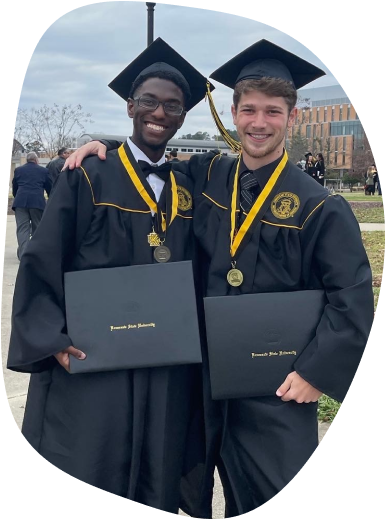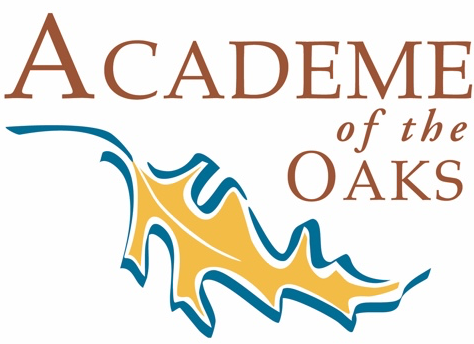our curriculum
EMPOWERING MINDS, SHAPING FUTURE
We prioritize the individual needs of teenagers at each stage of their high school education, recognizing the long-term impact of their learning journey.
Rather than relying on standardized tests and textbooks, we foster active engagement, creative thinking, and the exhilarating process of intellectual discovery. Our Waldorf curriculum explores various subjects such as math, science, literature, history, social sciences, and the arts, allowing students to broaden their perspectives.
Dedicated blocks are devoted to works like Homer’s Odyssey and Dante’s Divine Comedy, scientific topics like optics and hydrology, global developments, and mathematical branches such as calculus and projective geometry.
Small class sizes enable teachers to know each student personally, while promoting independence and collaboration.
“Academe provides an atmosphere for open discussion. You feel your opinions are valuable, so you learn to value the views and ideas of everyone else. Your mind develops and you learn so much more because of this openness.”
– ACADEME SENIOR
Each of the four years in the Waldorf high school curriculum has an underlying theme that supports the students as they develop.
SCIENCE
Science classes cultivate observation and critical thinking. Students study chemistry, physics, biology, geology, meteorology, astronomy, and ecology. Through practical exploration, they uncover how things work before theoretical explanations. Hands-on laboratory work and field experiences enrich our science curriculum.
ENGLISH
English classes spring from the study of literature, promoting self-knowledge and creative perseverance. The study of English cultivates strong writing, reading, and speaking skills, always emphasizing a love for language and communication. Students sharpen their thinking with work in grammar, mechanics, usage, and vocabulary, and they develop the art of writing in many forms, including the critical essay, the research paper, the short story, and the poem.
THE ARTS
The Arts bring harmony and balance to academic life, deepening and extending learning through music, drama, movement, and the fine and practical arts. Students develop a lasting appreciation and understanding of the role of aesthetics. Art classes may include drawing, painting, and sculpture; choral and instrumental music; theater and eurythmy (an art of movement); woodworking; ceramics; blacksmithing; and bookbinding.
MATH
Math classes teach students to think logically, practically, and with precision. Students build skills in the traditional areas of algebra, geometry, trigonometry, projective geometry and calculus, as well as surveying and applied mathematics. The study of math also gives students experiences of beauty and imagination as they work with number, form, and mathematical ideas.
HISTORY
History classes provide living experiences of past times, places, and people. Students are taught to observe the symptoms or phenomena of history to discover what these say about different time periods, cultures, and events. By the time students graduate, they have a real sense for global geography and global issues so that they may become responsible and active citizens of the world.
ELECTIVES
Twice-weekly, semester-long elective classes include Computer Science, Debate, Model United Nations, Mythology, Photography, Art, Agriculture, and Aboriginal Technologies. Students may also participate in year-long, after-school groups, among them Academe Singers and the Young Physicians Initiative.
honors, language immersion,
empowered learning

Our commitment to academic excellence shines through our honors classes in Mathematics and A with Honors distinctions available in Sciences, History, and English. Our language curriculum creates a living connection to foreign languages, fostering cultural appreciation and a deep understanding of literature. All students engage in four years of immersive foreign language study, with advanced Spanish options for qualified individuals.
AP Exams provide students with valuable opportunities to showcase their knowledge. Our Senior Projects empower twelfth graders to take charge of their own learning, demonstrating their discipline, research skills, and public speaking abilities.
Internships offer hands-on experience, enabling seniors to understand the inner workings of the professional world. Alongside our emphasis on holistic education, our athletic program cultivates qualities such as sportsmanship, citizenship, cooperation, and fairness, ensuring a well-rounded development for our students.
“My favorite memory of Academe was senior project work! In next 5-10 years, I plan on completing my Master of Science, performing research, completing his CSCS certification, and working on DPT/Ph.D.”
– WILLIAM REED, CLASS OF 2017

9TH GRADE
Freshmen learn the powers of observation through a variety of subjects such as Anatomy, Art History, Revolution and Reform, Descriptive Geometry, Organic Chemistry, and Comedy & Tragedy. Students begin to recognize the physical, emotional and intellectual changes happening within themselves.
1oTH GRADE
Sophomores learn a more formal process of comparing and contrasting ideas found in subjects like History of English, Poetry, Ancient Civilizations, Human Physiology, Surveying, and Greek Geometry. Students begin to identify their own connections with man, nature and the universe.
11TH GRADE
Juniors learn the power of analysis and interpretation through a variety of subjects including Atomic Theory, Projective Geometry, Music History, Astronomy, and the Romantics in Literature. Students develop abstract thinking skills and work with their own inner desire to explore worldviews
12TH Grade
Seniors apply the powers of synthesis to the study of Biochemistry, Modern World History, Calculus, Architecture and Economics. Students select a topic of interest and conduct their own independent studies for their senior project relying on self-discipline and motivation to complete their work.
Want to learn more about our rolling admissions process and take the next step to learn if Academe of the Oaks is right for your child?
146 New Street
Decatur, Georgia 30030
404.405.2173
